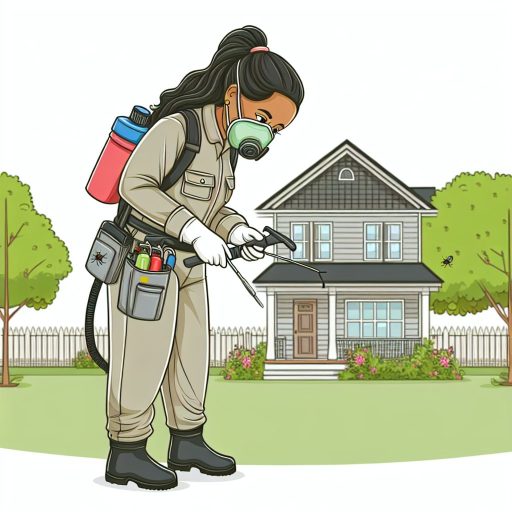Introduction
Having a strong restaurant management team is crucial for the success of any restaurant.
The management team is responsible for overseeing operations, managing staff, and ensuring customer satisfaction.
Importance of a Strong Restaurant Management Team
A strong management team sets the tone for the entire restaurant.
They lead by example and provide guidance for staff.
They enforce policies, maintain quality standards, and handle any issues that may arise.
Impact of a Strong Management Team on Overall Restaurant Success
When a restaurant has a strong management team in place, it can lead to increased efficiency, better customer service, and ultimately higher profits.
A well-managed restaurant is more likely to attract and retain customers, leading to long-term success.
Developing a Strong Management Team
Developing a strong restaurant management team is essential for overall restaurant success.
By investing in the right people and providing them with training and support, restaurants can ensure smooth operations and create a positive experience for both staff and customers.
Hiring the Right Individuals
When it comes to building a strong restaurant management team, one of the most crucial aspects is hiring the right individuals.
Without a solid foundation of skilled and talented managers, it can be challenging to run a successful restaurant.
Here are some key considerations when it comes to hiring the right individuals for your management team:
Identify Key Traits and Skills Needed for Management Positions
To ensure that you are selecting the best candidates for your restaurant management team, it’s essential to identify the key traits and skills needed for these positions.
Some of the crucial qualities to look for in potential managers include strong leadership abilities, excellent communication skills, problem-solving capabilities, and a passion for the hospitality industry.
These traits will help ensure that your management team can effectively lead and inspire their teams toward success.
Utilize Effective Hiring Strategies to Attract Top Talent
To attract top talent to your restaurant management team, it’s essential to utilize effective hiring strategies.
This includes creating detailed job descriptions that clearly outline the expectations and responsibilities of the role.
Conducting thorough interviews to assess candidates’ skills and fit for the position is also crucial.
Offering competitive compensation and benefits packages will attract top talent.
Additionally, leveraging online job boards, social media platforms, and networking events can help you reach a wider pool of qualified candidates.
Transform Your Career Today
Unlock a personalized career strategy that drives real results. Get tailored advice and a roadmap designed just for you.
Start NowBy focusing on identifying the right traits and skills needed for management positions and utilizing effective hiring strategies, you can build a strong restaurant management team that will drive the success of your business.
Remember, the strength of your management team directly impacts the overall performance and profitability of your restaurant.
Investing time and resources into hiring the right individuals is crucial for long-term success.
Training and Development
Implement ongoing training programs for management staff.
These programs can cover various aspects of restaurant management.
Such aspects include customer service, financial management, and team leadership.
Offer opportunities for professional growth and skill development to your management team.
This can include sending them to industry conferences, workshops, or enrolling them in online courses related to restaurant management.
Create a culture of continuous learning within your restaurant management team.
Encourage them to seek out new knowledge and skills that can help them improve their performance.
Encourage them to contribute to the overall success of the restaurant.
Provide regular feedback and coaching to your management team.
This can help them understand their strengths and areas for improvement.
It can empower them to take ownership of their professional development.
Encourage your management team to mentor and support each other.
By fostering a collaborative and supportive environment, you can enhance their skills.
This includes knowledge through peer-to-peer learning.
Invest in tools and resources that can support the ongoing training and development of your management team.
This can include training manuals, e-learning platforms, and industry publications.
Showcase Your Business Today
Reach thousands of readers actively exploring professional services. Publish your business profile and grow your audience now.
Publish NowSuch tools can help them stay updated on the latest trends and best practices in the restaurant industry.
Set clear goals and expectations for the training and development of your management team.
By establishing measurable objectives, you can track their progress.
This ensures that they are continuously growing and improving in their roles.
Monitor the effectiveness of your training programs and initiatives.
Regularly review feedback from your management team and assess their performance.
This can help identify areas where additional training or support may be needed.
Overall, investing in the training and development of your restaurant management team is essential.
It creates a strong and successful team that can drive the growth and profitability of your restaurant.
Learn More: Customer Relationship Management for Casino Dealers
Establishing Clear Roles and Responsibilities
- Define specific roles and responsibilities for each member of the management team
- Set clear expectations for performance and accountability
Establishing clear roles and responsibilities within a restaurant management team is crucial for the smooth operation and success of the business.
By clearly defining the specific duties and expectations for each team member, you can ensure that everyone is on the same page and working towards common goals.
Defining Specific Roles and Responsibilities
One of the first steps in developing a strong restaurant management team is to define the specific roles and responsibilities of each member.
This could include designating who is in charge of operations, finances, customer service, marketing, and human resources, among other areas.
By clearly outlining these roles, you can ensure that each team member understands their duties and can work together effectively.
For example, the head chef may be responsible for menu planning, ordering supplies, and overseeing the kitchen staff, while the front-of-house manager may be in charge of greeting and seating customers, managing reservations, and ensuring a positive dining experience.
By clearly defining these roles, you can avoid confusion and overlap in responsibilities.
Setting Clear Expectations for Performance and Accountability
In addition to defining roles, it is important to set clear expectations for performance and accountability within the management team.
This could include establishing key performance indicators (KPIs) for each team member, such as sales targets, customer satisfaction scores, or employee retention rates.
By setting these benchmarks, you can track progress and hold team members accountable for their performance.
Furthermore, it is crucial to communicate these expectations to the team and provide regular feedback on their performance.
This could involve conducting regular performance reviews, discussing areas for improvement, and recognizing achievements.
By providing this feedback, you can motivate team members to excel in their roles and contribute to the overall success of the restaurant.
Gain More Insights: Night Shifts vs. Day Shifts: What Casino Dealers Prefer
Communication and Collaboration
Foster open communication and collaboration among management team members.
Utilize tools and strategies to enhance team communication.
Fostering Open Communication
Effective communication is crucial for a strong restaurant management team.
To foster open communication among team members, consider the following strategies:
- Encourage regular team meetings where all members can share updates, challenges, and successes.
- Provide opportunities for team members to voice their opinions and feedback openly.
- Establish a culture of transparency and honesty within the team.
- Implement an open-door policy where team members feel comfortable approaching leadership with their concerns.
- Utilize communication tools such as email, messaging apps, or project management platforms to streamline communication.
Enhancing Team Collaboration
Collaboration is key to a successful restaurant management team.
To enhance collaboration among team members, consider the following tools and strategies:
- Implement a project management tool to assign tasks, track progress, and facilitate collaboration.
- Encourage team members to work together on cross-functional projects to foster collaboration.
- Hold brainstorming sessions or strategy meetings where team members can collaborate on new ideas and initiatives.
- Provide training or workshops on effective collaboration techniques to improve team dynamics.
- Establish a culture of teamwork and collective decision-making within the management team.
By fostering open communication and enhancing collaboration among management team members, you can create a strong and cohesive team that is better equipped to handle the challenges of running a successful restaurant.
See Related Content: Developing a Successful Client Onboarding Process

Developing a Strong Restaurant Management Team
Having a strong restaurant management team is essential for the success of any dining establishment.
In addition to hiring the right individuals for the job, it is equally important to provide ongoing support and feedback.
Providing Support and Feedback
Offer support and guidance to management team members.
Provide regular feedback to help improve performance and address any issues.
Offering Support and Guidance
One of the key ways to develop a strong management team is to offer continuous support and guidance to team members.
This includes providing them with the resources and tools they need to succeed in their roles.
Ensure that managers have access to training programs, professional development opportunities, and mentorship.
Showcase Your Business Today
Reach thousands of readers actively exploring professional services. Publish your business profile and grow your audience now.
Publish NowBy investing in their growth and development, you show that you value their contributions to the team.
Encourage open communication and create a culture where team members feel comfortable coming to you with questions or concerns.
By being available and approachable, you foster a supportive environment where everyone feels heard and valued.
Providing Regular Feedback
Feedback is crucial for improving performance and addressing any issues within the management team.
Make it a priority to provide constructive feedback regularly.
This includes both formal performance reviews and informal check-ins.
When giving feedback, be specific and focus on behaviors and actions.
Offer praise for accomplishments and provide suggestions for areas of improvement.
Give team members actionable steps they can take to grow and develop.
Encourage a two-way dialogue by asking for feedback from team members as well.
Create opportunities for self-assessment and reflection, allowing managers to share their perspectives.
By offering support and feedback to your restaurant management team, you are helping them succeed in their roles.
You are also building a strong, cohesive team focused on driving the success of your restaurant.
Invest in your team, and you will see the results in a well-run and thriving dining establishment.
Learn More: Financial Advisors: Offering Comprehensive Services
When it comes to developing a strong restaurant management team, one of the key factors to consider is promoting a positive work culture.
A positive work culture can significantly impact the success and overall performance of the team.
Here are some strategies to help promote a positive work culture:
Create a Positive and Inclusive Work Environment
- Encourage open communication and feedback among team members.
- Promote a sense of belonging and teamwork within the management team.
- Provide opportunities for professional growth and development.
- Lead by example and demonstrate positive behavior and attitudes.
- Encourage creativity and innovation within the team.
- Create a supportive and safe space for team members to share their ideas and opinions.
- Organize team-building activities and events to foster camaraderie.
Recognize and Reward Team Members for Their Contributions
- Implement a reward system to acknowledge and appreciate the hard work of team members.
- Provide verbal recognition and praise for achievements and milestones.
- Offer bonuses or incentives for exceptional performance.
- Celebrate individual and team successes to boost morale and motivation.
- Give opportunities for team members to showcase their skills and talents.
- Provide ongoing training and support to help team members excel in their roles.
- Create a culture of gratitude and appreciation within the team.
By actively promoting a positive work culture within your restaurant management team, you can enhance team cohesion, boost morale, and improve overall performance.
Investing in your team’s well-being and fostering a supportive and inclusive environment can lead to long-term success and growth for your restaurant.
Building a Strong Restaurant Management Team
Developing a strong restaurant management team is crucial for the success of any food establishment.
It involves hiring competent individuals, providing them with proper training, and empowering them to make decisions.
By investing time and resources into building a solid management team, restaurant owners can expect improved operational efficiency, increased customer satisfaction, and ultimately, higher profitability.
A well-functioning management team can lead by example, motivate staff, and ensure consistency in service and quality.
Restaurant owners must prioritize the development of a strong management team as it lays the foundation for long-term success.
With the right team in place, restaurants can navigate challenges, adapt to changing trends, and continue to thrive in the competitive food industry.
A strong management team is not just a luxury but a necessity for restaurants aiming for sustained growth and success.
It is the backbone of the business, providing support, leadership, and direction to ensure the smooth operation and success of the restaurant.
Additional Resources
107 Customer Service Statistics and Facts You Shouldn’t Ignore
Leadership | Panda Restaurant Group
[E-Books for Sale]
The Big Book of 500 High-Paying Jobs in America: Unlock Your Earning Potential
$19.99 • 500 High-Paying Jobs • 330 pages
Explore 500 high-paying jobs in America and learn how to boost your career, earn more, and achieve success!
See All 500 High-Paying Jobs of this E-Book
1001 Professions Without a Degree: High-Paying American Jobs You Can Start Now
$19.99 • 1001 Professions Without a Degree • 174 pages
Discover 1001 high-paying jobs without a degree! Unlock career tips, skills, and success strategies for just $19.99!




